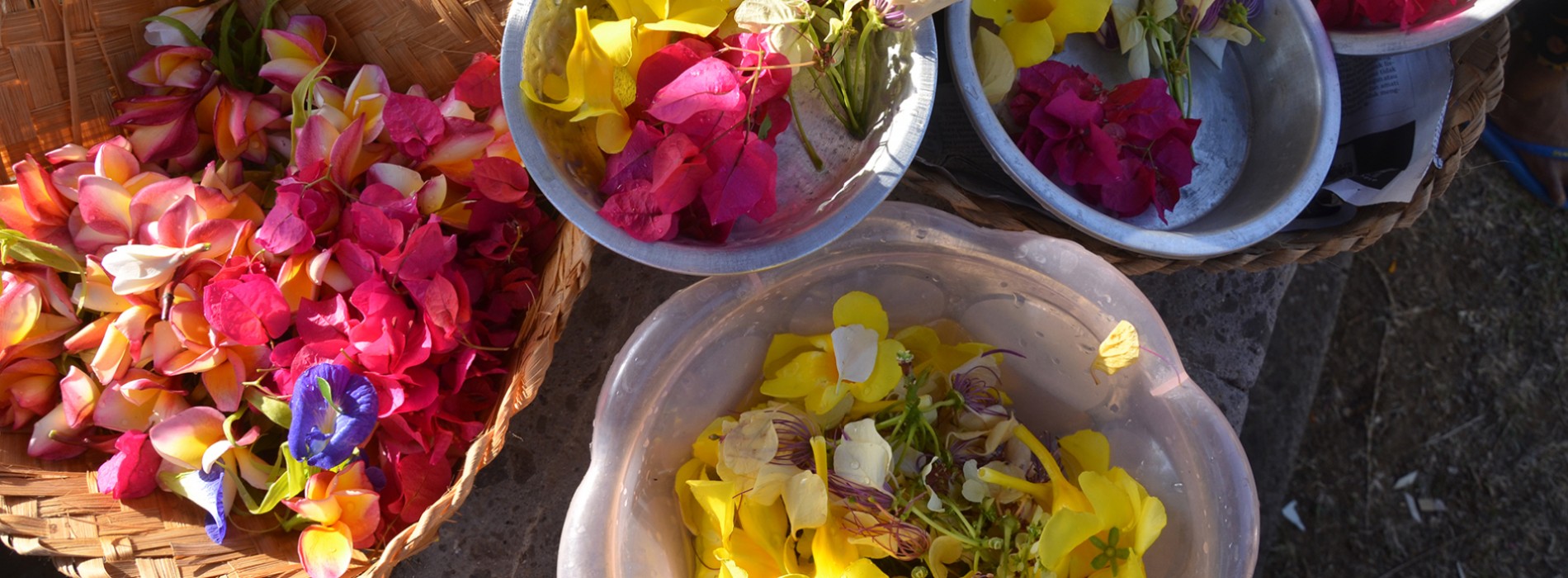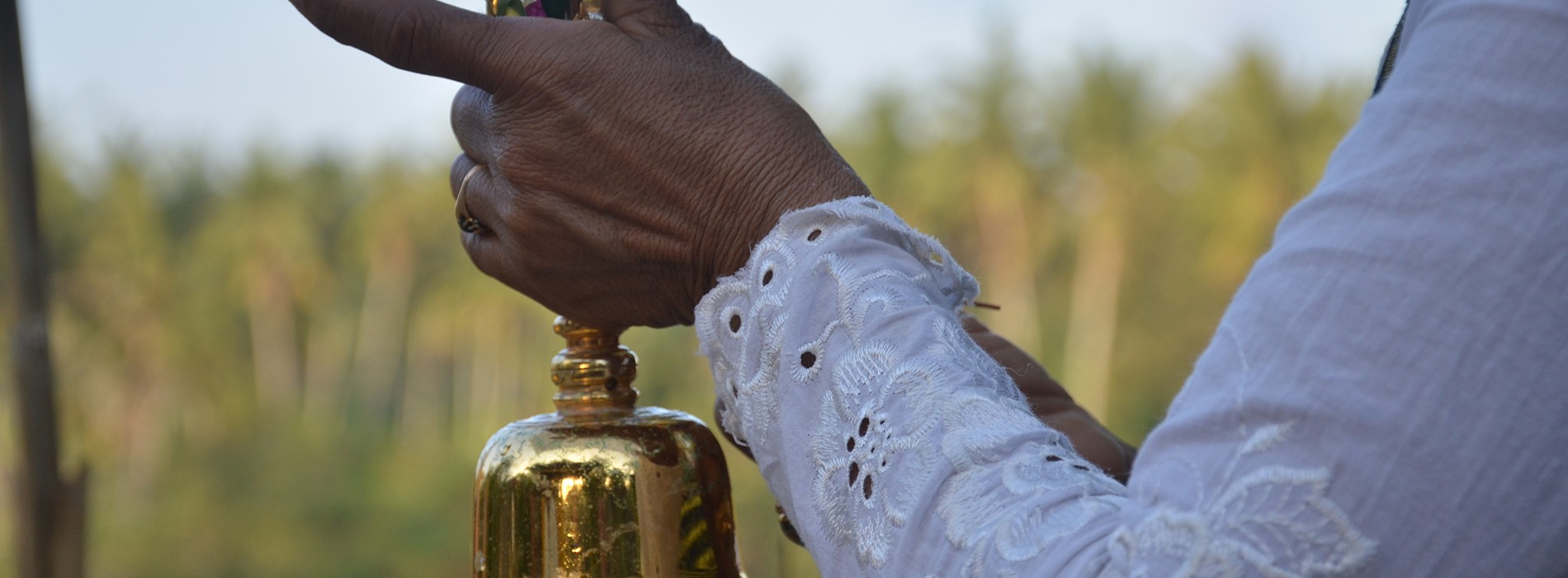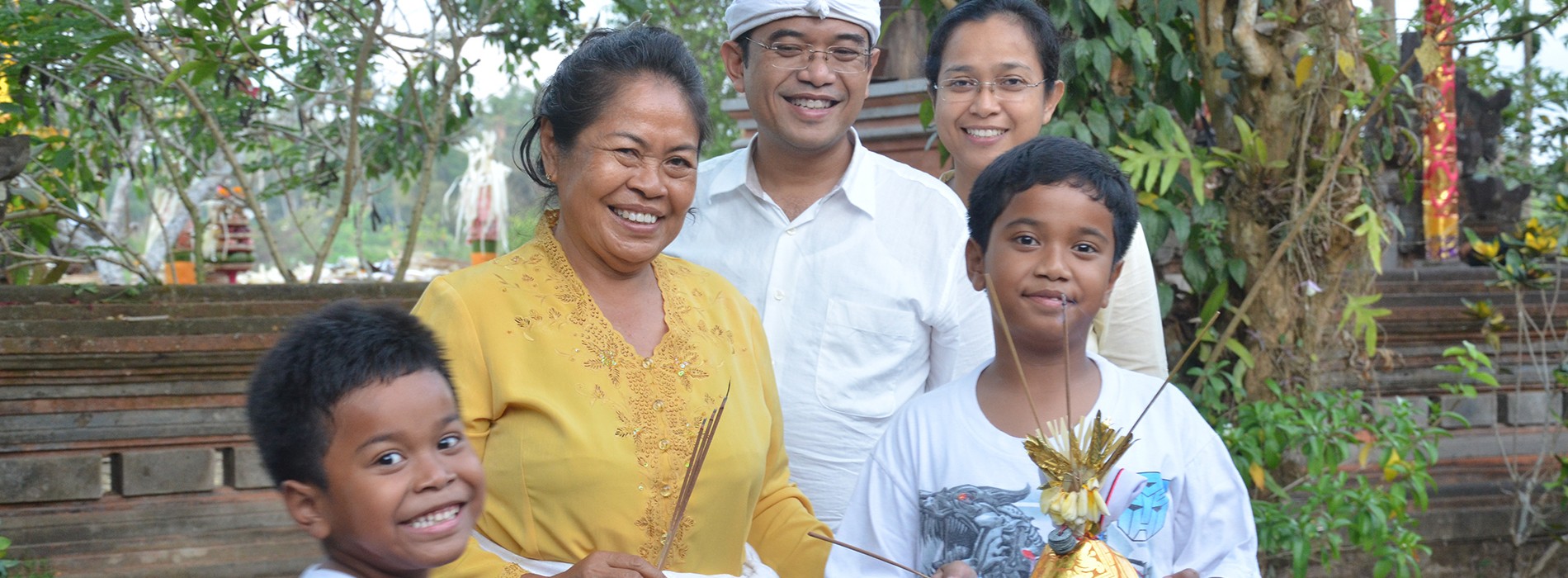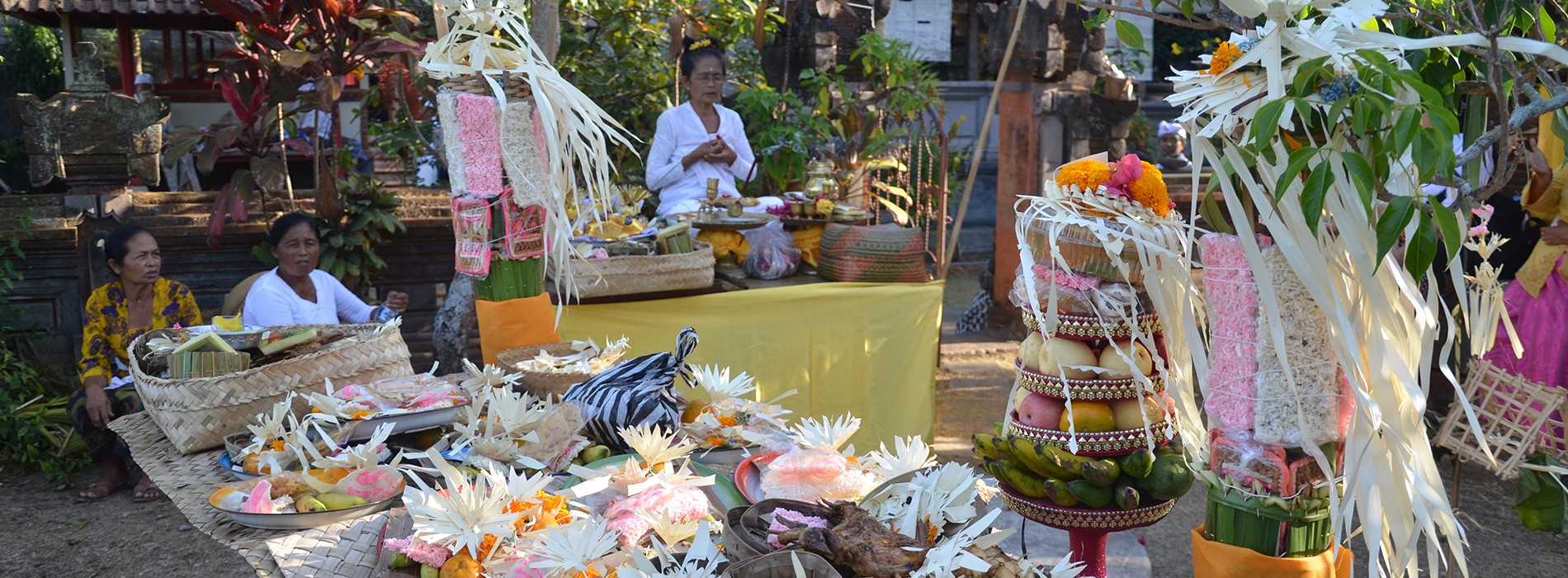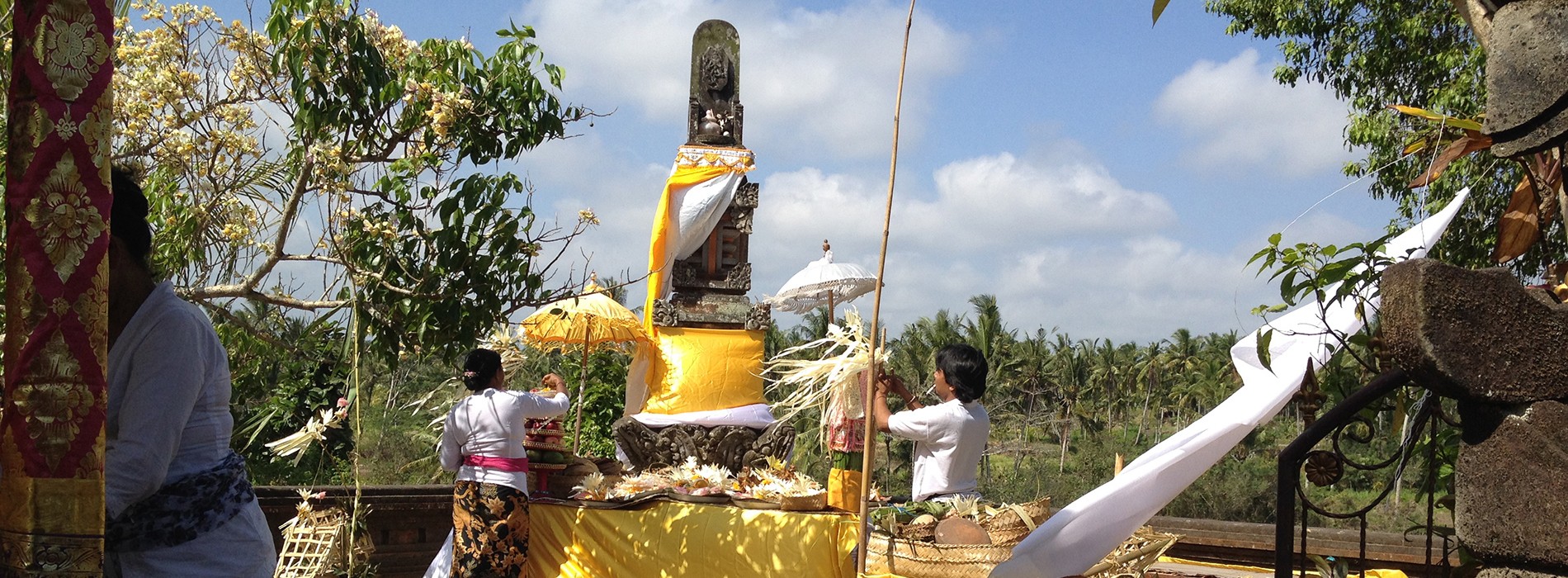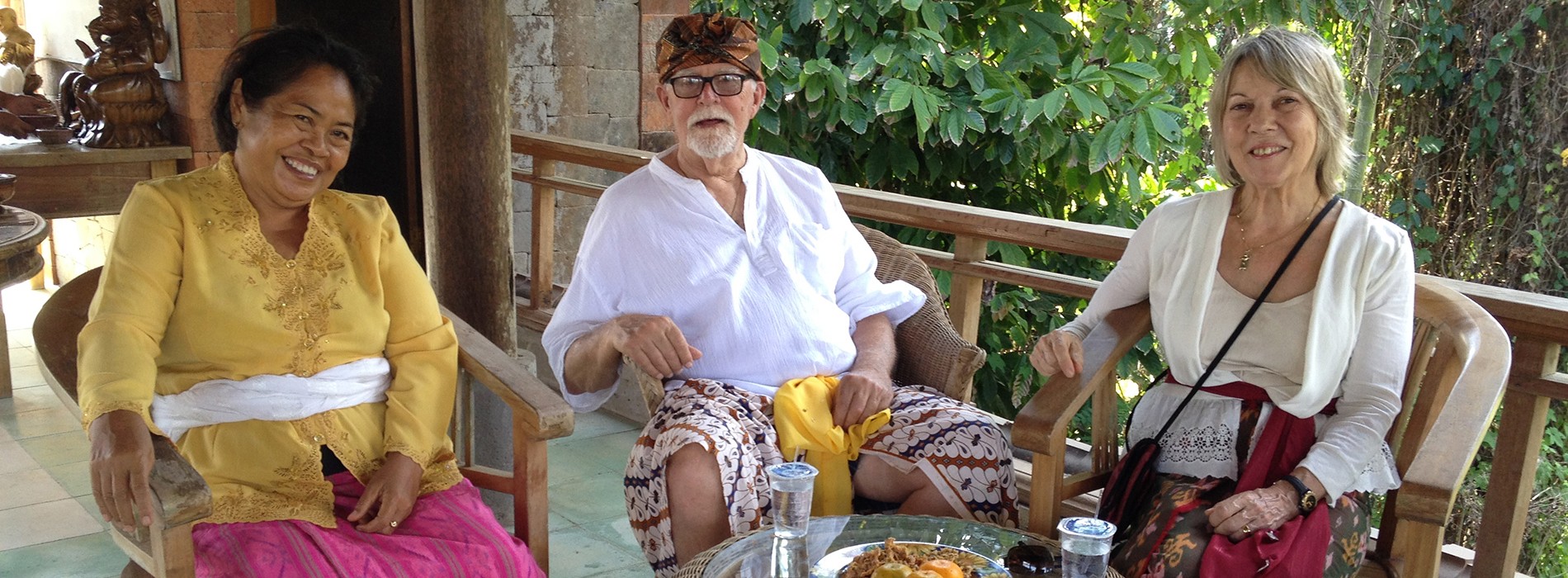Culture can be perceived or it can be experienced. Yet some visitors to Bali may not know exactly how to get into the thick of things. Fortunately, a little "one woman show" in an out-of-the-way Balinese community has created the perfect environment for just such an experience.
Sua Bali "resort is a unique pilot project on sustainable, socially-responsible village tourism. With just five thatched cottages set in a traditional Balinese village, it introduces guests to culture, language, cooking and daily life on Bali, all on a very personal basis. For its owner, Ida Ayu Agung Mas, Sua Bali represents the culmination of a 15-years-old dream. And a commendable dream at that: last March, Sua Bali received The Berlin-based Study Circle for Tourism and Development's first International award for "socially Responsible Tourism".
The thesis for Sua Bali as born from the reverse culture shock Agung Mas experienced when she returned to Bali after studding literature and language in Germany. "When I returned here, I found nothing was right. Than I realised it was I who had changed," she recalls. "I tried to frame a solution for the meeting of cultures, based on tourism and language."
Sua Bali's Agung Mas takes her guests out of their way to prove that tourism is a two-way street.
The cultural conflicts in Agung Mas'own life. Through the challenge of building Sua Bali, she overcome her own personal battles with culture, family and tradition. "Finally, I am free of binding tradition, yet living in the middle of it and sharing it with others," she says.
Using the Balinese philosophy of balance and harmony, Sua Bali (which literally means "meet" or "experience" Bali) strives to merge tourism concepts with authentic experience, while respecting local economic, socio-cultural and environmental interests.
Agung Mas set her own criteria for the retreat's location. l"It had to be a village setting, but not too isolated. A view of nature was essential and a river side location was important - to avoid building a swimming pool!"
She found the spot in Kemenuh village, just south of Ubud, 10 ears ago. "Most tourists staying along the southern coast get a very superficial impression of Bali on their inland excursions," says Agung Mas. "They see landscapes, beautiful smiling people and mysterious dances, but they never get a chance to understand much of what they see. They return home with photos but no true experiences of what makes Bali different from other destinations.
"Sometimes the Balinese are hurt because tourists fall to show the necessary respect when visiting ceremonies and temple festivals. Or they are disappointed because they receive little financial benefits from tourism."
Sua Bali aims to ameliorate these shortcomings by giving tourists an opportunity to delve into the island's traditions. Immersed in natural surroundings, guests of Sua Bali awaken to the crwing of cocks and fall asleep to the chirping of cicadas and the music of nearby temples. By learning the culture and reasons for customs, they appreciate the nuances of ceremonies and festivals and can treat them with respect. Tourism becomes a two-way relationship.
…"This is not a vast money-making project. Sua Bali is here to offer a different perspective."…
Guests are treated like part of the community and share in the village upkeep by donating a dollar a day to the village. More than $US 5,000 has been contributed in this manner and more than $3,000 has been donated voluntarily. These funds go toward temple festivals, villager welfare and to Kemenuh's general upkeep. Thus, the villager welcome tourists and invite them to all local events. l"It is a frame within which the guests, the villager and I can live in harmony with each other and learn from one another," says Agung mas.
With only eight rooms, Sua Bali has a relaxed, intimate atmosphere. Friends have suggested Agung Mas capitalise on her success by expanding the property, bt she remains firm in her commitment to small-scale developments. "this is not a vast money - making project. Sua Bali is here to offer a different perspective."
Many guests use the retreat as a base from which to explore the island, taking off and returning to Sua Bali before departing the island for their home countries. Like a home base, they return to the resort and find guests they already know. Half of Sua Bali's guests are either repeaters or those who come based on the recommendations of friends.
Guests participate individually or in small groups in a range of discovery courses held at regular intervals, such as Indonesian language or Balinese cookery. Intensive language study of 20 to 30 hours a week is an option for those planning to be in Indonesia for the long term, while conversational lessons are available for short-stay tourists who just want to chart with locals. A professor of language and tourists studies at Bali's BPLP and Udayana Universities, Agung Mas teaches several of the language, cooking and culture programs herself.
Local batik artists or wood carvers teach other skills, and discussions and seminars can be arranged for visitors with specific professional interests. Once, when Sua Bali was hosting a German physician, Agung max invited a Balinese doctor to discuss herbal medicine and natural remedies. Teachers staying at Sua Bali are likewise invited to visit Balinese schools.
A pioneer in equally distributing the positive effects of tourism while consciously avoiding the negative impacts, Sua Bali demonstrates how small-scale truism can be carefully developed in untouched regions to the benefits of local ceremonies. Agung Mas believes the retreat's core aspects-training, visitor information, promoting local awareness, environmentally sensitive construction, local participation - can be incorporate dingo any tourist project, no matter how large or small, to provide tangible and spiritual benefits for all participants. She hopes Sua Bali will serve as a role model.
"If I can influence one person, it can affect 10 others."
Article taken from Bali Kini, August 1996, p. 14


